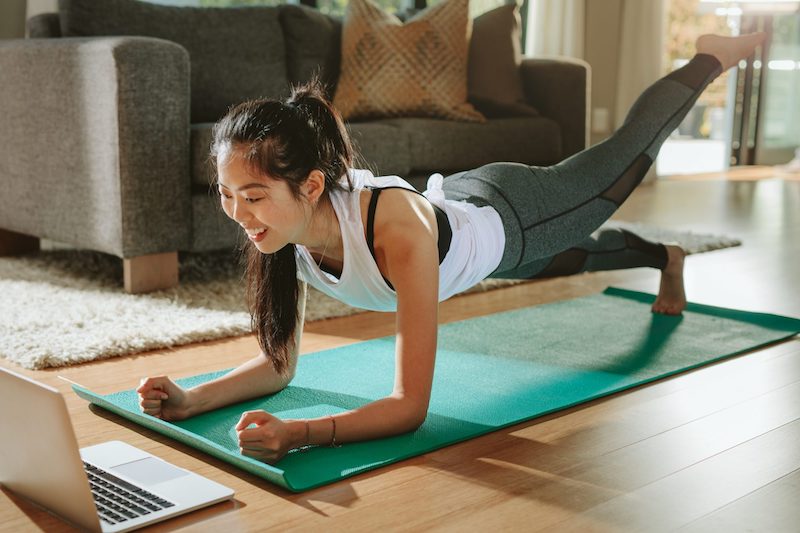Why Routines are Important for Mental Health

June 02, 2020
By Larry Ginsberg
It has been said that humans are creatures of habit, and while we like moments of spontaneity and surprise, we feel comfortable when we know what to expect and can follow a plan or schedule.
During the COVID-19 pandemic it has been easy to lose track of time as our rigorous daily schedule and commute have been replaced by being quarantined at home for endless hours and days, and the lack of a schedule has made many of us more uncomfortable than we had imagined.
According to Ramon Solhkhah, M.D., chair, Department of Psychiatry, Jersey Shore University Medical Center, “While many of us complain about how busy our schedules are, it represents expectations and patterns that are an important component of good mental health.” He continues, “The pandemic has left many people feeling adrift because those daily routines that were essential to us before the COVID-19 crisis have evaporated and been replaced by uncertainty and a lack of structure that can contribute to stress, anxiety and even clinical depression.”
Before the coronavirus pandemic, many of us would not hesitate to complain about schedules packed with work commitments, social engagements, sporting events to attend or after-school activities for the kids. Most of us now yearn for something on the calendar to manage and plan for.
Why routines are important:
- They create structure – A daily routine often begins with the alarm clock ringing to start our day, and the routines follow from there with showering, brushing our teeth, dressing and grabbing coffee on the way to the office.
- They give us a sense of accomplishment – Routines typically have a beginning and an end, and we plan our day and time around being able to prioritize them and accomplish the most important tasks of the day for ourselves and our families.
- They let us know how we are doing – Even small routines like showering, brushing our teeth, and dressing are important parts of our day. Since the pandemic, many of us have taken a more liberal approach to those daily routines, such as working from home in sweatpants that were once reserved for weekends. Although this change is subtle, it can have a big impact, making you feel sluggish or lazy.
- They let people around us know how we are doing – Routines also are indications to people around us of how we are doing. Before the pandemic, if you didn’t show up for work people would worry, or if you didn’t come out of your house for weeks friends would look in on you or be concerned about your well-being. With no routine, there are a lot of unknowns that can cause concern or anxiety.
Routines, even simple ones, can be important anchors to maintaining good mental health and dealing with anxiety during the pandemic. Dr. Solhkhah noted, “Routines can create a positive level of stress that keeps us focused and may avoid some of the depression that many people may experience as a result of the COVID pandemic, isolation, fear and uncertainty. I recommend creating and maintaining routines that you can follow even in quarantine that will help reduce the mental health impact of what we are experiencing.”
Simple routines to organize your day include:
- Wake up the same time every day
- Shower as if you were going out
- Dress for the day (even in casual and comfortable attire)
- Eat meals at regular times
- Keep to a daily schedule of exercise
- Limit your use of electronic devices or TV time
- Go to bed at the same time each night
If working from home or while you are quarantined, Dr. Solhkhah suggests creating separate “zones” in your home to differentiate work areas from leisure or communal areas which will also create structure and routines within the home. If a room is designated as the home office then we get accustomed to focusing only on work in that area. That routine gives us the opportunity to “leave work” later in the day as we enter the kitchen for meal and family time, and the living room for relaxation.
In addition to your regular routine, try including new activities that can become a healthy part of your daily routine. Try adding some deep breathing exercises to your day which can be relaxing, or consider trying meditation that can be calming and improve your resilience.
The COVID-19 pandemic has replaced packed schedules with unstructured time that can be detrimental to good mental health. The structure of even small daily routines become important patterns and expectations that give us just enough positive stress to get through a day with a sense of purpose and well-being.
Next Steps & Resources:
- Meet our clinical contributor: Ramon Solhkhah, M.D.
- To make an appointment with Dr. Solhkhah or another provider, call 800-822-8905 or visit our website
- Learn more about our Urgent Care with Behavioral Health
The material provided through HealthU is intended to be used as general information only and should not replace the advice of your physician. Always consult your physician for individual care.
Find a doctor near me
Feel Pandemic Guilt? You’re Not Alone. Here’s How to Overcome It.

The coronavirus pandemic has stirred a variety of emotions and feelings within everyone.
Telemedicine to Fill Mental Health Medications?

Running out of paper towels is a pain. Running out of medicine is an emergency. Learn more about telemedicine for behavioral health medication management.
Find a doctor near me

Drugs & Alcohol Are No Way to Cope
Heightened anxiety can manifest itself in a variety of harmful behaviors, not least among them the increased use of drugs and alcohol.

How Isolation Can Affect Cognitive Function
Combat isolation's impact on cognitive function. Dr. Kera offers tips for improved brain health & connection. Learn strategies to boost memory & focus.

Reduce Your Fear of Needles
A fear of needles can seem debilitating. Here are some tips to help overcome the phobia.

Are You Addicted to Food?
Food addiction help. Drs. Afzal & Strom offer guidance on recognizing and addressing food addiction & overeating. Learn more & find support.
